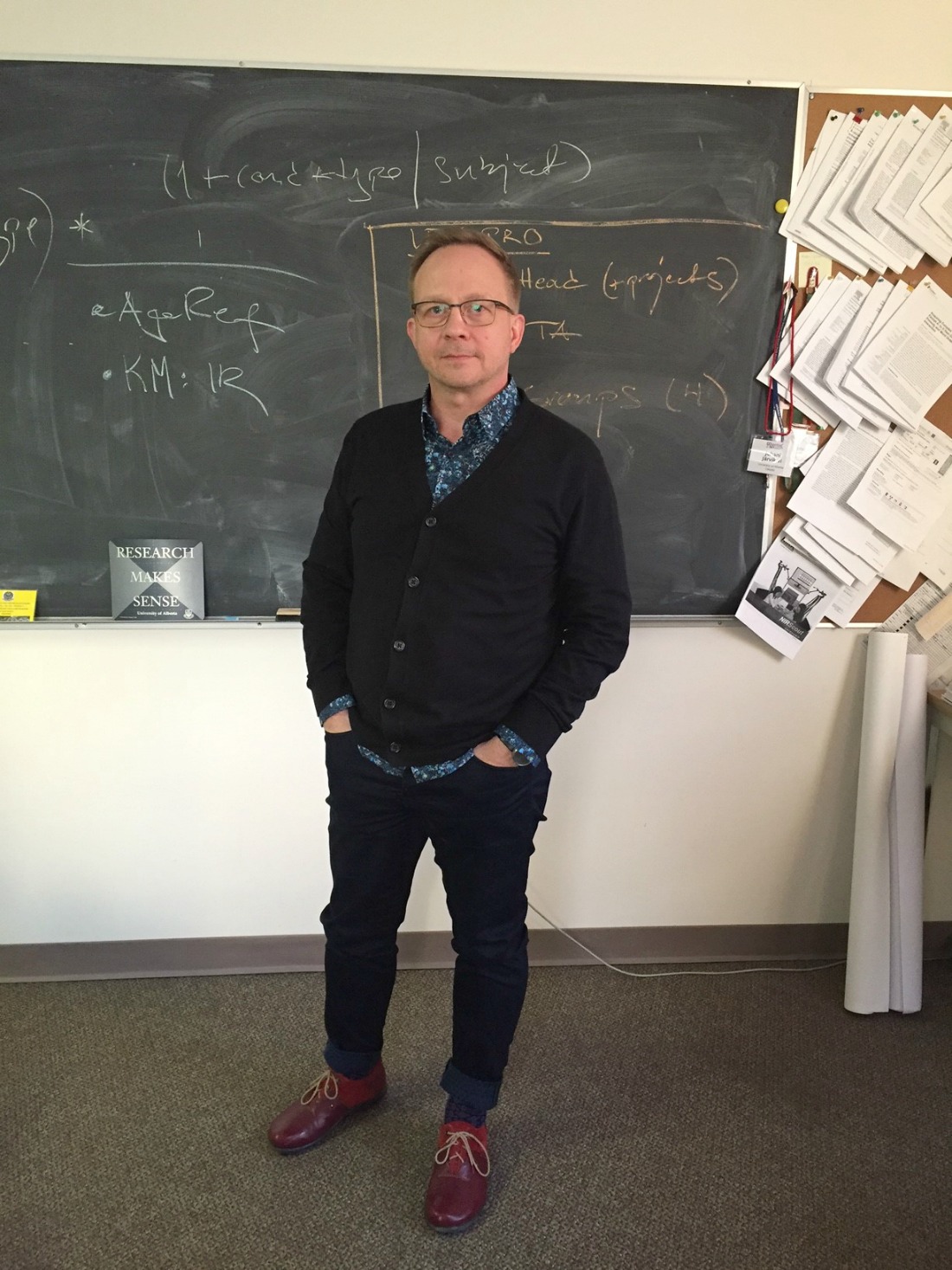
Juhani Järvikivi, photo: Donna McKinnon
Juhani Järvikivi has always been interested in language. A slight speech impediment as a child made him pay attention to spoken words in a way that seeded his imagination and later, fueled his career as a psycholinguistics researcher.
"In Finnish, you're supposed to say 'r' in a certain way, but I couldn't say it," he explains. "I said it like the Germans - in the throat, and I got teased. So language and how you speak it became a thing I paid attention to."
Psycholinguistics, or the study of the neurobiological factors that enable humans to process language, is traditionally carried out in a laboratory, but a new $2.5 million SSHRC-funded project - Words in the World - is taking the research out of the lab and into the global community.
Järvikivi, co-principal investigator of Words in the World, says that the partnership of more than 70 researchers, universities, organizations and community groups will bring theoretical knowledge, specialized equipment and methodologies to real-world populations and issues. And, perhaps most importantly, through various mentoring events and activities, it will help to train and develop the next generation of researchers.
"It's all about the exchange of ideas and knowledge mobilization," he says. "We have about 30 collaborators from abroad, including Europe and the States, and what we are aiming for is that by the end of the project, we will have established a certified training structure that is invaluable." The project's goal is to train approximately 500 students, postdoctoral fellows and young researchers worldwide by the end of the six-year study.
Gary Libben, a Brock University professor and founder of UAlberta'sCentre for Comparative Psycholinguistics (now headed by Järvikivi) leads the Words in the World project. He says that they have a great deal of knowledge about how people behave in laboratory settings, but very little information about the cognitive processes in more natural settings, such as vehicles and malls. The potential benefit to the community is significant, with the development of techniques and processes that could, for example, raise literacy rates in children and adults, expand vocabulary skills in a first or second language and aid seniors and those with disabilities in language comprehension.
Navigating language is a complicated affair. It's not just how we learn words; it's how we use language to communicate our human experiences. Linguists study language, and while many researchers focus on a particular language or the general properties of all languages, the study of how we acquire and comprehend language is an interdisciplinary practice, involving the interplay of physiological, psychological and linguistic factors. "It's what goes on in your mind and brain when you process language," says Järvikivi, adding that the study of psycholinguistics borrows heavily from experimental psychology and other sciences.
"Every single person is a different human being, and every single person has a different experience with any bit of language that you throw at them," he says. "We need to be in the middle of the mix, because we can't look at our language or our mind or our brain from the outside. It doesn't work that way."
Much of Järvikivi's research is conducted at the Centre for Comparative Psycholinguistics (CCP), which is jointly hosted by the Department of Linguistics and the Arts Resource Centre. According to Järvikivi, the CCP has many functions, but primarily acts as a both an experiential learning opportunity and as a linguistics training laboratory for students and post-docs. Libben, who taught at the University of Alberta from 1992 to 2011 and remains an adjunct professor, still uses the facility as a base for his research project, the Mental Lexicon.
Järvikivi has known Libben since he was a visiting student in 1997. He says what he and Libben have in common, and what unites all of the participants of the Words in the World project, is the love of words.
"Somehow," he says, "when you get interested in language, it stays with you."
Read more about Words in the World here.
Read more about the Centre for Comparative Psycholinguistics here.